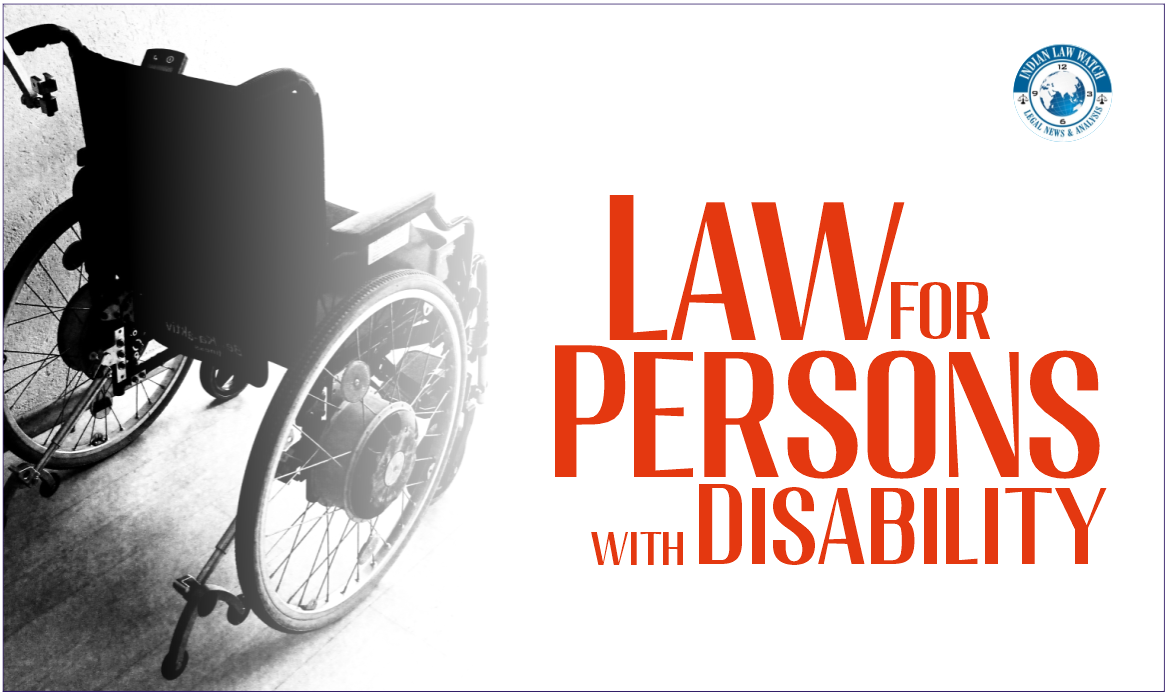

A bench headed by Chief Justice Satish Chandra Sharma observed that although the legislature took a “commendable leap” with the enactment of the Rights of Persons with Disabilities Act, 2016, the process of its implementation is challenging as “reformation of mindsets is a gradual process” and “seemingly settled issues resurface” when recruitment is done by authorities.
Lamenting the “status-quoist” approach in the implementation of the law recognising the rights of persons with disabilities (PwD), the Delhi High Court on October 16 said instead of giving such people an equal space to grow, they are being compelled to prove that “they are capable of a lot more than we think”.
A bench headed by Chief Justice Satish Chandra Sharma observed that although the legislature took a “commendable leap” with the enactment of the Rights of Persons with Disabilities Act, 2016, the process of its implementation is challenging as “reformation of mindsets is a gradual process” and “seemingly settled issues resurface” when recruitment is done by authorities.

-
The court’s observations came while setting aside a recruitment advertisement issued by the Kendriya Vidyalaya Sangathan (KVS) in 2018 for various posts, such as those of principals, vice-principals, teachers, librarians etc.
-
The petitioner, National Federation of the Blind, represented in the court by senior advocate S K Rungta, had alleged non-implementation of the statutory reservation for (PwDs), particularly for blind persons, in the recruitment process.
-
It was argued that the advertisement excluded the post of principal from the posts reserved for persons with visual disability and also did not reserve 4 per cent posts for the PwD category against the total number of vacancies in a cadre, in accordance with the PwD Act.
-
The court refused to uphold the advertisement on account of it being in violation of the PwD Act, saying it excluded the PwD from the race, which was in complete violation of the mandatory reservation provision under the “landmark social justice legislation”.
-
“From 1995 to 2016, the legislative wisdom experienced a significant growth. However, the status-quoist approach in the implementation of the legislation in its true spirit still prevails. We are reminded of the classic French expression — ‘the more things change, the more they stay the same’,” said the bench, also comprising Justice Sanjeev Narula.
-
“Every now and then, seemingly settled issues resurface in the recruitments opened by different departments or by different governments. Every time a judicial forum is asked to revisit and reiterate the same principles, that too for the protection of the vulnerable sections, it only reflects a status-quoist approach on the part of the departments and establishments,” it added.
-
The court observed that the advertisement distinguished the PwD from others and put a restriction on their potential to participate in the recruitment process to their full ability.
-
It emphasised that every act of exclusion is an assault on the dignity of a person and an act of discrimination is a denial of the promise of equal protection before the law.
-
The court said the Constitution envisages a special protection for certain classes, including the PwD, and every establishment is bound to take steps and act in accordance with the PwD Act.
-
“We may regretfully note that despite the passage of almost four decades of the movement, one United Nations’ convention and two legislations passed by Parliament, we are struggling to fulfil our promises made to the persons with disabilities as our fellow citizens,” the court said.
-
“Instead of providing an equal space to grow, we have been compelling the persons with disabilities to prove, time and again, that they are capable of a lot more than we think,” it observed.
-
The court, in its order, directed the KVS to conduct an audit of the total number of its vacancies and prepare a vacancy-based roster in accordance with the law for PwD and file a timeline within which they would be filled.
-
“The respondent (KVS) shall implement the 4 per cent reservation strictly in accordance with section 34,” it ordered.
-
If any vacancy, which ought to have been reserved, has already been filled by any other person, the KVS shall adjust it from the unreserved pool of the available vacancies, the court further said.
-
It also clarified that the KVS shall reserve the principals’ posts for persons with benchmark disabilities in the blind or low-vision category at a minimum of 1 per cent and not create subject-wise sub-categories within a cadre.
“The vacancies shall be calculated on the total number of vacancies in a particular cadre and not on posts,” the court said, adding that no deviation from the statutory rule or exclusion of any post shall be made except in accordance with the legal procedure.
Source: MoneyControl





